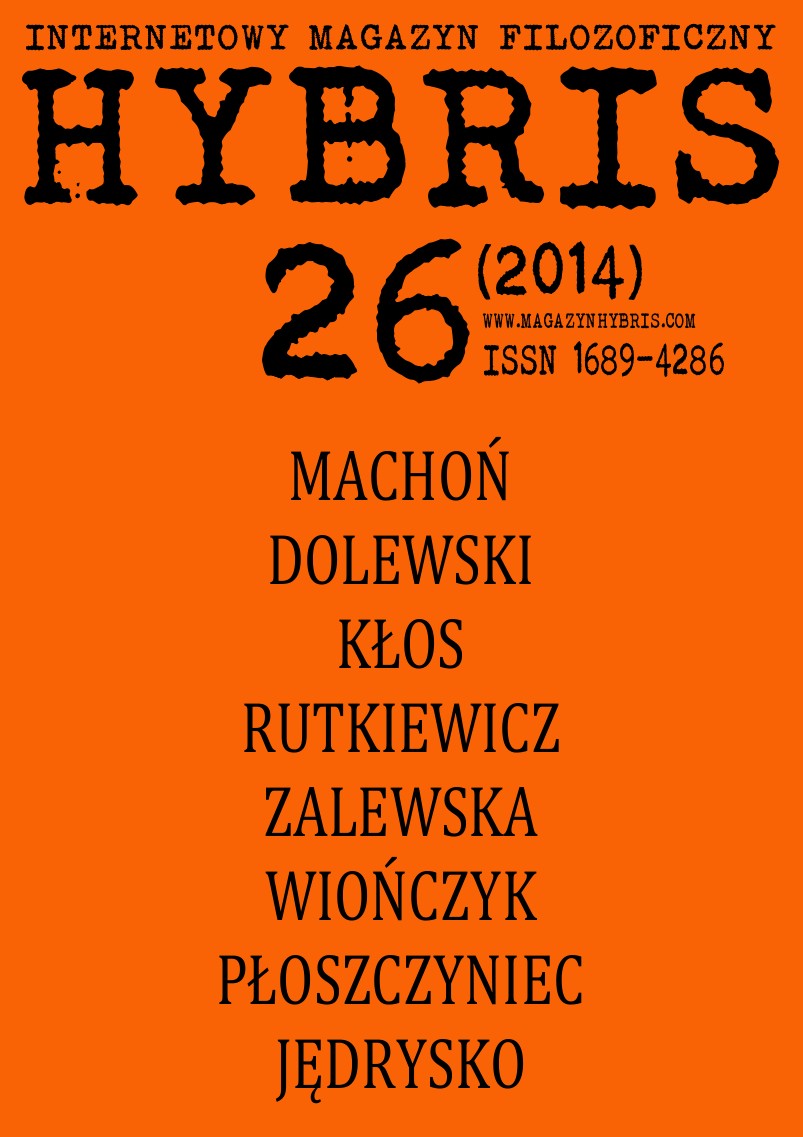Boska przemoc. Wokół kozła ofiarnego René Girarda
DOI:
https://doi.org/10.18778/1689-4286.26.06Abstrakt
Girard indicates an ancient text which we perfectly know as one of the books of the Holy Scripture - the Book of Job. He presents the ominous face of the sacred, the idea of a divinity, in the name of which a scapegoat can be selected and executed. Job for Girard is an unsuccessful scapegoat, i.e. the one that has not accepted his fault. Had Job not rebel against the social intentions, today he would be an example of another subject of collective violence which brought unity to its community.
The theory of Girard, who is of the opinion that each culture is based on founding murder and secondary sacralisation of the victim is particularly popular today, in the age of the problem of terrorism. Slavoj Žižek, commenting Benjamin, takes up this thread we are interested in. This theological dimension is divine violence, understood as intervention of a transcendent justice. Such an interpretation of religiously motivated terrorism is so far from Benjamin’s divine justice, that Žižek does not continue this thread. However, the person who does this is Płuciennik, who stresses that terrorists’ motivation has iconoclastic dimension. He notices that there is a strong current in the contemporary intellectual landscape, which refers to apocalyptic thinking, connected with retribution theology.
Bibliografia
Bogusławski Marcin, 2010, Homo sacer w świecie chaosu, [w:] Ł. Musiał, M. Ratajczak (red.), W spawie Agambena. Konteksty krytyki, Poznań: Wydawnictwo Poznańskie.
Zobacz w Google Scholar
Colli, Giorgio, 1991, Narodziny filozofii, przeł. S. Kasprzysiak, Kraków-Warszawa: Oficyna Naukowa.
Zobacz w Google Scholar
Gillespie, Michael, 2010, Martin Heidegger, przeł. A. Serafin, [w:] L. Strauss, J. Cropsey, (red.), Historia filozofii politycznej, Warszawa: Fronda.
Zobacz w Google Scholar
Girard, René, 1987, Kozioł ofiarny, przeł. M. Goszczyńska, Łódź: Wydawnictwo Łódzkie.
Zobacz w Google Scholar
Girard, René, 1992, Dawna droga, którą kroczyli ludzie niegodziwi, przeł. M. Goszczyńska, Warszawa: Spacja.
Zobacz w Google Scholar
Girard, René, 2006, Początki kultury, przeł. M. Romanek, Kraków: Znak.
Zobacz w Google Scholar
Homer, 2008, Iliada, przeł. F. K. Dmochowski, Kraków: Greg.
Zobacz w Google Scholar
Lipszyc, Adam, 2010, Włoski strajk generalny, [w:] Ł. Musiał, M. Ratajczak (red.), W spawie Agambena. Konteksty krytyki, Poznań: Wydawnictwo Poznańskie.
Zobacz w Google Scholar
Lipszyc, Adam, 2012, Sprawiedliwość na końcu języka. Czytanie Waltera Benjamina, Kraków: Universitas.
Zobacz w Google Scholar
Płuciennik, Jarosław, 2009, Literatura, głupcze! Laboratoria nowoczesnej kultury literackiej, Kraków: Universitas.
Zobacz w Google Scholar
Zagajewski, Adam, 2010, Wiersze wybrane, Kraków: Wydawnictwo a5.
Zobacz w Google Scholar
Žižek, Slavoj, 2010, Przemoc. Sześć spojrzeń z ukosa, przeł. A. Górny, Warszawa: Wydawnictwo Literackie Muza.
Zobacz w Google Scholar
Pobrania
Opublikowane
Jak cytować
Numer
Dział
Licencja

Utwór dostępny jest na licencji Creative Commons Uznanie autorstwa – Użycie niekomercyjne – Bez utworów zależnych 4.0 Międzynarodowe.






